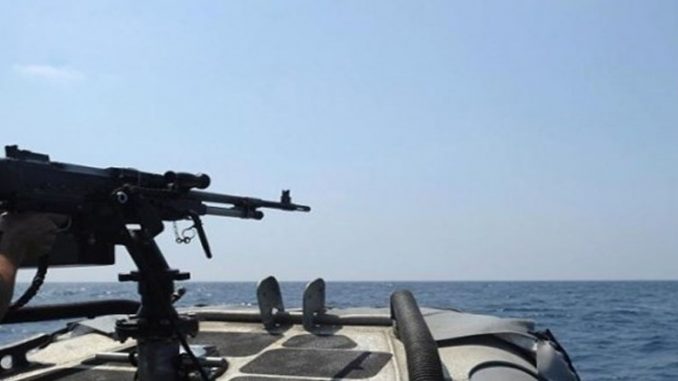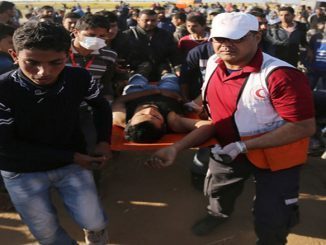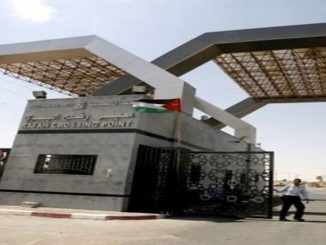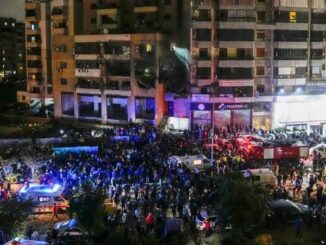The head of the Gaza fishermen’s union, Nizar Ayyash, said that an Israeli navy ship attacked and sunk a boat belonging to Muhammad al-Hissi Wednesday night at around 10:30 p.m. off the coast of Beit Lahiya, and that al-Hissi went missing shortly afterwards.Ayyash added that searches were being conducted to find the fisherman.
An Israeli army spokesperson told Ma’an that Israeli naval forces were escorting a Palestinian fishing boat which had deviated from the Israeli-designated fishing zone to a port on Wednesday evening when “the Israeli vessel collided with another Palestinian vessel which was not visible.”
The spokesperson added that the incident was being reviewed and that Israeli forces were searching the area for reported missing people.
The Hamas movement released a statement later on Thursday, condemning the “direct assault” on al-Hissi’s boat, calling it an “organized and hideous crime.”
Spokesperson for the movement Abd al-Latif al-Qanou said the incident called for a stand by international and rights institutions “to stop Israeli crimes against Palestinians.”
Meanwhile, the Islamic Jihad movement also released a statement Thursday, calling the incident a “terrorist assault,” and added that the missing fisherman represents a new violation to the declared ceasefire in 2014.
The statement added that the incident was entirely Israel’s fault by targeting Palestinian fishermen attempting to provide for their familes. “If the offensive does not stop it is our right to defend ourselves and our people,” the statement read.
Palestinians who work near the “buffer zone” often come under fire from military forces, as the Israeli military has not made clear the precise area of the designated zone.
The Israeli army regularly open fires on Palestinian fishermen and farmers along the border areas, despite a ceasefire agreement that ended the 2014 war.The practice has in effect destroyed much of the agricultural and fishing sectors of the blockaded coastal enclave.




